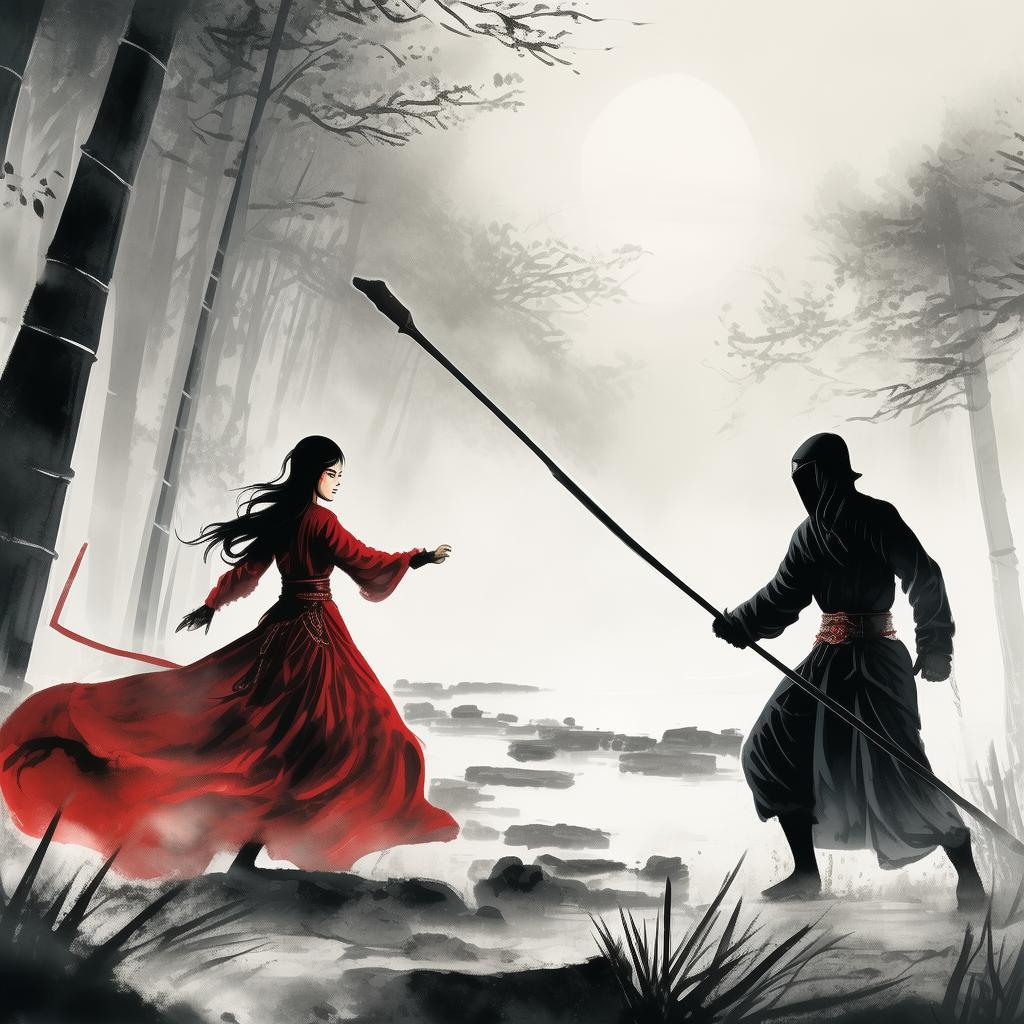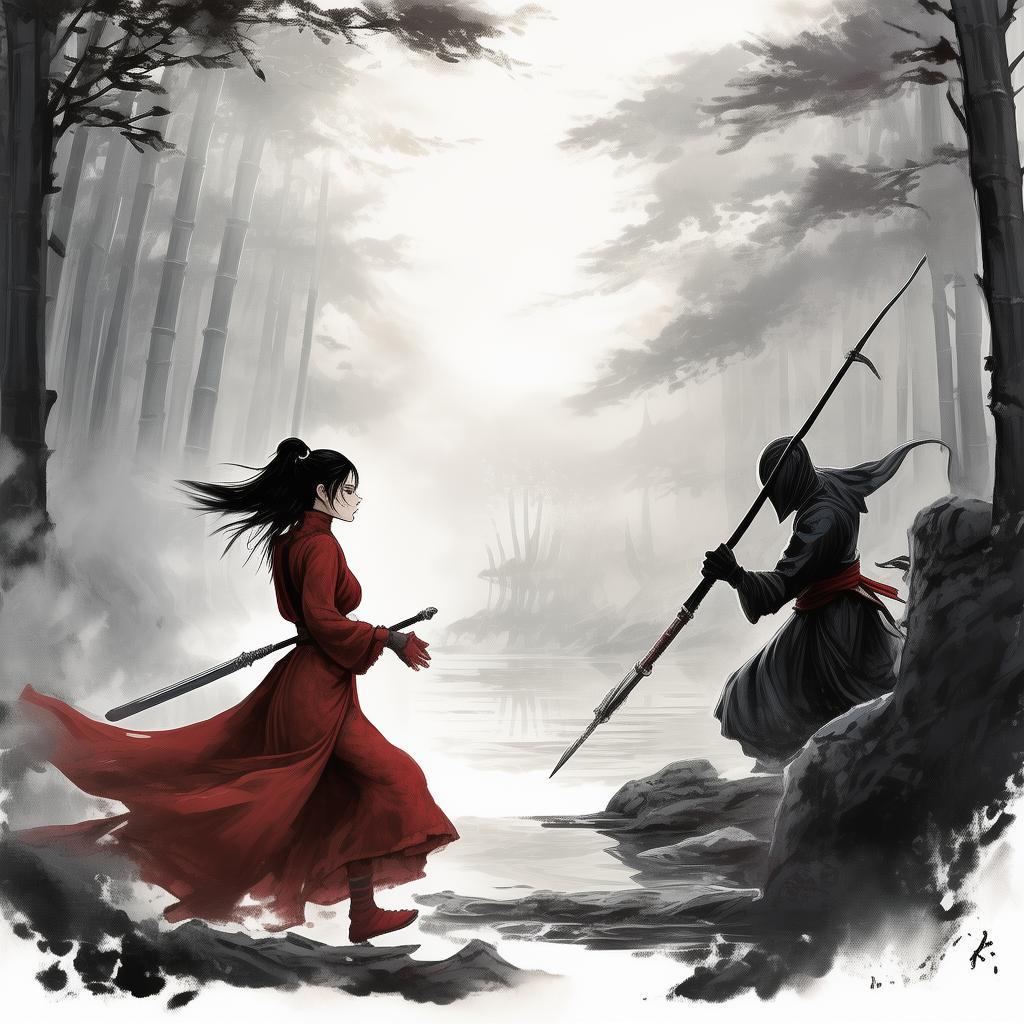Shadow of the Imitator: The Paladin's Paradox
In the ancient land of Jingzhou, where the wind whispers secrets of old and the mountains echo the tales of warriors, there existed a martial arts game of unparalleled complexity and intrigue. It was a game where the essence of one's martial arts was mirrored by another, a reflection of skill and spirit. This game was known as "The Martial Arts Game," and it was the cornerstone of the martial arts community.
Among the most revered of the martial artists was the Paladin, a man whose name was synonymous with justice and skill. His martial arts were not just techniques, but a testament to his character and his unwavering commitment to the martial arts code. The Paladin was a guardian of the balance, a protector of the innocent, and a vanquisher of evil.
One day, a shadow fell over Jingzhou. A copycat emerged, a martial artist who seemed to mimic the Paladin's every move with uncanny precision. This copycat, known only as the Imitator, began to challenge the Paladin's reputation, his identity, and the very essence of martial arts.
The Paladin's Paradox was a riddle that no one could solve: how could a copycat claim to be the Paladin? The Martial Arts Game's Copycat Conundrum was a challenge to the very fabric of martial arts, a game where the line between reality and illusion blurred.
The Paladin, determined to uphold the integrity of his art and his name, decided to confront the Imitator. The two warriors met in the heart of the ancient city, where the streets were paved with stories and the air was thick with the scent of history.
The Imitator, with a smile that seemed to mock the Paladin, stepped forward. "I am the Paladin," he declared. "Or at least, I am the Paladin you see in the mirror."

The Paladin, his eyes burning with the fire of his convictions, replied, "Then let us see who truly is the Paladin. Let us not just fight with our hands, but with our hearts and our souls."
The battle that ensued was not just a fight between two martial artists, but a battle between the essence of martial arts and the temptation of imitation. The Imitator's moves were a dance of shadows, his form a reflection of the Paladin's, yet he lacked the Paladin's heart.
As the fight progressed, the Paladin realized that the Imitator's true power lay not in his mimicry, but in his ability to provoke thought and challenge the very nature of martial arts. The Paladin, with a newfound respect for the Imitator, decided to take a different approach.
Instead of fighting, the Paladin offered a challenge to the Imitator: to prove his worth not through mimicry, but through originality. The Imitator, intrigued by the Paladin's proposal, accepted the challenge.
The two warriors agreed to a new game, one that would test the limits of their martial arts and their spirits. They would compete not in combat, but in the creation of their own martial arts styles, a testament to their individuality and their dedication to the true essence of martial arts.
The Imitator, inspired by the Paladin's challenge, began to create a style that was his own, a style that reflected his own spirit and his own journey. The Paladin, in turn, delved deeper into his own martial arts, seeking to refine and perfect his art.
As the days turned into weeks, the two warriors worked tirelessly, their spirits soaring as they discovered new depths within themselves. The martial arts community of Jingzhou watched in awe, their eyes wide with the realization that the true essence of martial arts was not in mimicry, but in the pursuit of one's own path.
Finally, the day of the competition arrived. The Paladin and the Imitator stood before the crowd, their hearts pounding with the weight of their challenge. The Paladin, with a style that was a blend of ancient traditions and his own ingenuity, performed a series of moves that left the crowd breathless.
The Imitator, in turn, revealed a style that was a fusion of various martial arts, yet uniquely his own. The crowd erupted in applause, their eyes filled with awe and respect.
In the end, it was not a competition of who was the better martial artist, but a celebration of the diversity and depth of martial arts. The Paladin and the Imitator, no longer rivals, became friends, their bond forged in the fire of their shared journey.
The Martial Arts Game's Copycat Conundrum had been resolved, not through combat, but through the understanding that the true essence of martial arts lay not in mimicry, but in the pursuit of one's own path, the pursuit of the true self.
And so, the Paladin's Paradox remained a riddle, a paradox that no one could solve, for the answer was as unique as each martial artist's journey. The Paladin and the Imitator, now friends, continued to walk their paths, their spirits forever intertwined in the tapestry of martial arts history.
✨ Original Statement ✨
All articles published on this website (including but not limited to text, images, videos, and other content) are original or authorized for reposting and are protected by relevant laws. Without the explicit written permission of this website, no individual or organization may copy, modify, repost, or use the content for commercial purposes.
If you need to quote or cooperate, please contact this site for authorization. We reserve the right to pursue legal responsibility for any unauthorized use.
Hereby declared.









